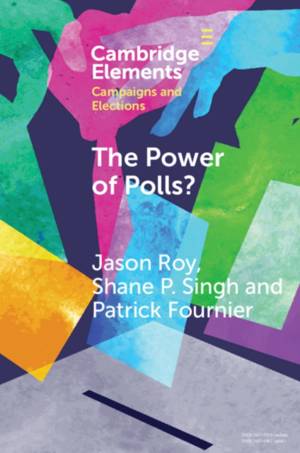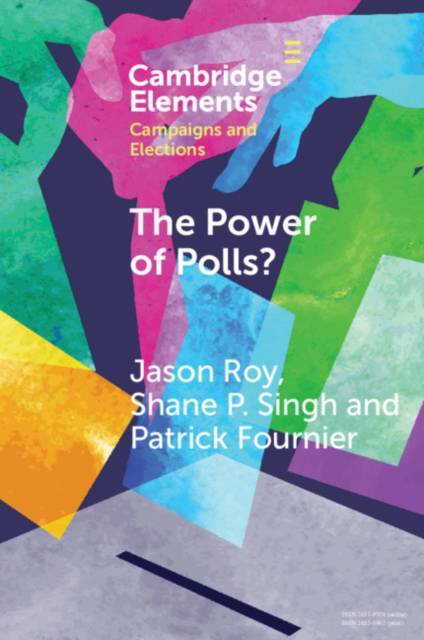
- Afhalen na 1 uur in een winkel met voorraad
- Gratis thuislevering in België vanaf € 30
- Ruim aanbod met 7 miljoen producten
- Afhalen na 1 uur in een winkel met voorraad
- Gratis thuislevering in België vanaf € 30
- Ruim aanbod met 7 miljoen producten
Zoeken
The Power of Polls?
A Cross-National Experimental Analysis of the Effects of Campaign Polls
Jason Roy, Shane P Singh, Patrick Fournier
€ 31,95
+ 63 punten
Omschrijving
Public opinion polls have become increasingly prominent during elections, but how they affect voting behaviour remains uncertain. In this work, we estimate the effects of poll exposure using an experimental design in which we randomly assign the availability of polls to participants in simulated election campaigns. We draw upon results from ten independent experiments conducted across six countries on four continents (Argentina, Australia, Canada, New Zealand, the United Kingdom, and the United States) to examine how polls affect the amount of information individuals seek and the votes that they cast. We further assess how poll effects differ according to individual-level factors, such as partisanship and political sophistication, and the content included in polls and how it is presented. Our work provides a comprehensive assessment of the power of polls and the implications for poll reporting in contemporary elections.
Specificaties
Betrokkenen
- Auteur(s):
- Uitgeverij:
Inhoud
- Aantal bladzijden:
- 75
- Taal:
- Engels
- Reeks:
Eigenschappen
- Productcode (EAN):
- 9781108792462
- Verschijningsdatum:
- 7/10/2021
- Uitvoering:
- Paperback
- Formaat:
- Trade paperback (VS)
- Afmetingen:
- 152 mm x 229 mm
- Gewicht:
- 127 g

Alleen bij Standaard Boekhandel
+ 63 punten op je klantenkaart van Standaard Boekhandel
Beoordelingen
We publiceren alleen reviews die voldoen aan de voorwaarden voor reviews. Bekijk onze voorwaarden voor reviews.











